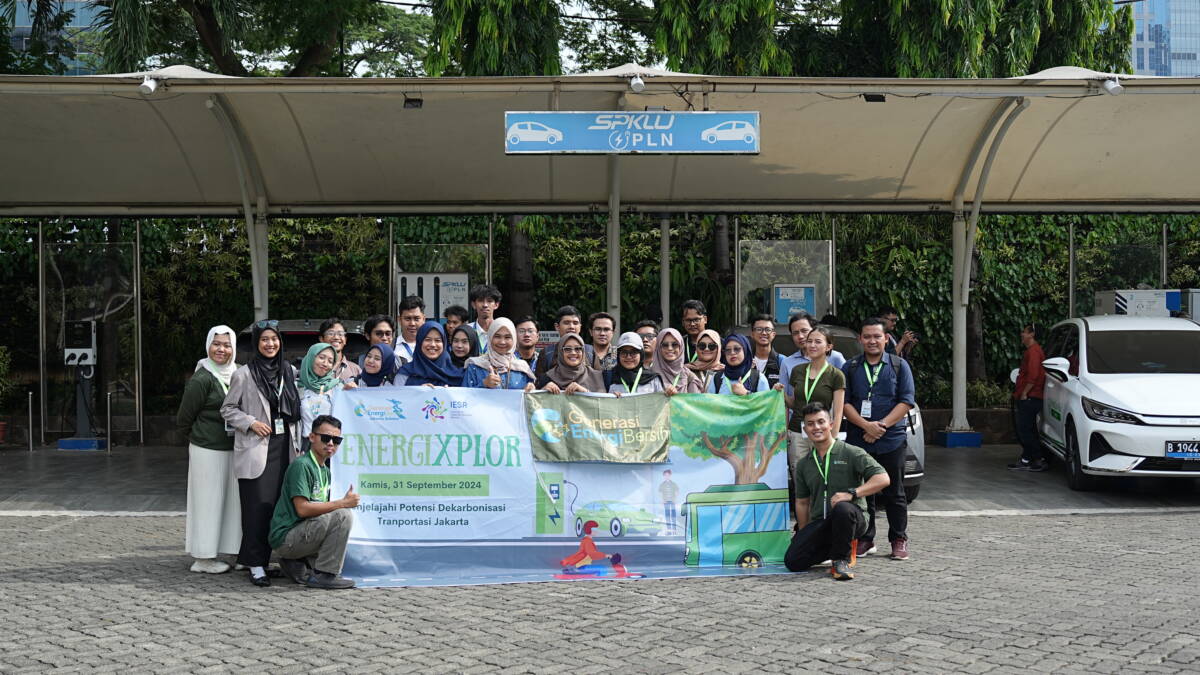Jakarta, November 1, 2024 – In 2021, the transportation sector was the second largest contributor to greenhouse gas (GHG) emissions in Indonesia. A study by the Institute for Essential Services Reform (IESR) in the Indonesia Energy Transition Outlook (IETO) 2024 revealed that passenger vehicles accounted for 73.1 percent of the 150 million tons of carbon dioxide equivalent emitted by the transportation sector. Consequently, both central and local governments must develop a comprehensive strategy for transportation decarbonization.
Efforts to reduce emissions in the transportation sector necessitate technological innovations, including the adoption of electric vehicles and the optimization of low-emission public transport. To showcase low-emission transportation solutions, Generasi Energi Bersih (GEN-B) South Jakarta, in collaboration with the Institute for Essential Services Reform (IESR), initiated the EnergiXplor project: Exploring the Decarbonization Potential of Jakarta Transportation.
Gieska Aulia Permana, Chairperson of GEN-B South Jakarta, noted that one of the primary contributors to high emissions in the transportation sector is the extensive use of fossil fuels, such as fuel oil (BBM). Citing an IESR analysis, Gieska explained that fossil fuel consumption increased between 2015 and 2020, reaching 1.2 million kiloliters per year, with a decline only occurring in 2020 due to the Covid-19 pandemic.
“The use of electric vehicles is one approach to reducing emissions. However, the impact will be more substantial if the power source is also derived from renewable energy, such as solar energy,” stated Gieska.
Rahmi Puspita Sari, Sustainable Mobility Analyst at IESR, emphasized that effective collaboration between the central and local governments is essential to promote transportation decarbonization. Additionally, a clear mechanism, including coordination flows, will facilitate policy implementation. For all transportation users, Rahmi outlined three decarbonization strategies that can be easily integrated into daily life: Avoid, Shift, and Improve. In summary, “Avoid” refers to minimizing unnecessary trips; “Shift” encourages the use of low-emission modes of transportation, such as public transit; and “Improve” focuses on enhancing the quality of vehicles, for example, by opting for electric motorcycles.
“Everyone can contribute to reducing emissions by selecting the strategy that best fits their living conditions and activities. Additionally, the government needs to provide infrastructure that connects communities and public spaces, such as designing urban areas based on the Transit Oriented Development (TOD) concept,” explained Rahmi.
A total of 35 participants, including media representatives, students, and community members, visited four locations: PT Mobil Anak Bangsa Indonesia, a manufacturer of Indonesian-made electric vehicles; Elders Garage, an electric motorcycle conversion workshop; the Gambir Electric Vehicle Charging Station; and the Lebak Bulus MRT Depot.

